This article was co-authored by Jonathan Frank, MD and by wikiHow staff writer, Jennifer Mueller, JD. Dr. Jonathan Frank is an Orthopedic Surgeon based in Beverly Hills, California, specializing in sports medicine and joint preservation. Dr. Frank's practice focuses on minimally invasive, arthroscopic surgery of the knee, shoulder, hip, and elbow. Dr. Frank holds an MD from the University of California, Los Angeles School of Medicine. He completed an orthopedic residency at Rush University Medical Center in Chicago and a fellowship in Orthopedic Sports Medicine and Hip Preservation at the Steadman Clinic in Vail, Colorado. He is a staff team physician for the US Ski and Snowboard Team. Dr. Frank is currently a scientific reviewer for top peer-reviewed scientific journals, and his research has been presented at regional, national, and international orthopedic conferences, winning several awards including the prestigious Mark Coventry and William A Grana awards.
There are 9 references cited in this article, which can be found at the bottom of the page.
This article has been viewed 37,917 times.
A severe ACL tear is excruciating and often requires surgery to completely fix. It's natural to be nervous about surgery, especially if it's your first time. Fortunately, ACL surgery is typically an outpatient procedure that will have you home and resting within a few hours. Following your doctor's instructions to the letter in the weeks before surgery will ensure you have an optimal recovery.[1]
Steps
The Weeks before Surgery
-
1Ask for time off work. Typically, you'll need several weeks off of work after surgery. If you have a more physically demanding job, you might need several months. Your doctor will advise you on how long you need to ask off.[2]
- Generally, it's best to ask as soon as possible, so your employer has time to make accommodations for your absence. For example, they might want you to train someone else to do your job on a temporary basis while you're gone.
- If your boss is reluctant to give you the time off that you need, talk to a local attorney. You may have the legal right to time off for medical or disability-related leave. For example, in the US, you have the right to up to 12 weeks of unpaid leave each year for a medical condition.[3]
-
2Exercise to build strength in the muscles surrounding your knee. Your doctor or physical therapist will likely recommend a list of exercises designed to strengthen your quads, calves, hamstrings, and other muscles and tendons in your leg that support your knee. The stronger these muscles are before surgery, the less strain you'll put on your knee during recovery.[4]
- Try using an exercise bike for a low-impact exercise that will strengthen your knee. Start slowly, working your way forward and backward until eventually you can get all the way around on the bike.[5]
- Depending on the severity of your injury, some of these exercises might be difficult or painful for you to do. If you're having a hard time with them, speak up and let your doctor know.
- In some situations, your doctor might recommend that you start working with a physical therapist before surgery to get your leg and knee in the best possible shape going in.
Advertisement -
3Do stretches to regain the full range of motion in your knee. Your doctor or physical therapist will likely also suggest stretches that you can do at home each day. These stretches can help increase the range of motion in your knee after your injury. If you're able to get back your full range of motion after your injury, you stand a much greater chance of having that same range of motion after surgery.[6]
- If you don't have full range of motion in your knee before your surgery, you're at a high likelihood of developing "frozen knee" after your ACL reconstruction.[7]
-
4Take nutritional supplements to enhance your post-op recovery. Multivitamins, vitamin C, and zinc can help with wound healing. Talk to your doctor about other supplements that might benefit you.[8]
- The food you eat can also impact the surgery and your result. Your doctor will typically ask about your diet — be honest! If your doctor gives you a nutritional plan, do your best to follow it.
-
5Limit or stop using caffeine, nicotine, and alcohol. Substances containing caffeine, nicotine, and alcohol have a negative impact on surgery and post-op recovery. While a cup of coffee in the morning or a glass of wine with dinner might be fine, your doctor will likely encourage you to cut these substances entirely a week or two before surgery.[9]
- It can be extremely difficult to stop smoking suddenly, but it's not impossible. Even if this only ends up being a temporary quit, you'll have a better outcome and recover faster if you don't smoke.[10]
-
6Go over your full treatment plan with your doctor. Before surgery, tell your doctor about your goals for recovery. Based on your goals, your activity level before your injury, and the severity of your injury, your doctor will design a treatment plan specifically for you.[11]
- If there's any part of your treatment plan that you don't understand or that you don't think is going to work for you, tell your doctor before surgery. That gives them plenty of time to come up with an alternative.
- Remember that treatment plans are flexible. Don't be afraid to speak up if there's some aspect of the plan that you'd rather not do.
-
7Arrange your home so that you'll be able to move around after surgery. Move anything that you might trip on and widen walkways and spaces between furniture as much as possible. Keep in mind you're going to be on crutches for several weeks.[12]
- If your bedroom is upstairs, you probably want to make arrangements to sleep downstairs, at least for the first week or two after surgery, when stairs likely won't be doable for you.
- Make sure your bathroom is accessible and on the same floor where you'll be spending time after surgery. If that's not possible for you, you might need to buy a portable commode you can use, at least for the first week or so.
- Stock your recovery space with plenty of pillows and blankets, bottled water, and healthy snacks. Set up chargers for your electronic devices nearby along with plenty of books, magazines, and other activities to keep yourself occupied.
-
8Practice walking with crutches. If you've never walked with crutches before, they can take some time to get used to. Get your crutches before you go into surgery so you can practice with them, especially around your house.[13]
- Your doctor can help make sure your crutches are adjusted properly for your height and give you some tips on how to walk on them more comfortably.
The Day of Surgery
-
1Don't eat or drink 8-12 hours before surgery. Your doctor will typically recommend that you fast before surgery. This is usually easiest if you have surgery first thing in the morning. Then, you can eat a filling dinner and sleep through the hours you're not supposed to be eating.[14]
- If your surgery is scheduled later in the day, ask if there's something light that you can eat in the morning to keep from getting too hungry during the day.
- Usually you can continue to drink water, but don't overdo it. Make sure you're well-hydrated in the days leading up to your surgery so you don't feel the need to drink as much the day of.
-
2Do something relaxing to ease your tension. On the day of surgery, you're likely to be extremely tense. Unless you're rolling out of bed and going straight to the doctor's, do something fun and calming to take your mind off your upcoming appointment.[15]
- For example, you might read a book or watch your favorite show on TV. Arts and crafts or coloring in an adult coloring book are also relaxing activities that can help distract you from worrying and stressing out over surgery.
-
3Dress comfortably for surgery. Wear loose-fitting clothes in soft fabrics that you can easily get on and off. Avoid leggings or anything else that's tight around your legs — they might be difficult to get back on after surgery. If it's warm out, shorts are fine. Don't worry about any jewelry or accessories — they could get lost and might interfere with the surgery.[16]
- Bring a light jacket or hoodie with you because you'll probably feel a little chilly when you get out of surgery.
- If you normally wear contacts, it's a good idea to swap them for glasses on the day of your surgery. They can injure your eyes or get lost.[17]
-
4Talk to your surgeon about the procedure. Your surgeon will explain the procedure in-depth, as well as any risks associated either with the procedure itself or with the anesthesia. Listen closely and ask questions if there's anything you don't understand.[18]
- The surgeon can also help you anticipate how you'll likely feel when you get out of surgery and let you know what to expect in the coming hours after you go home.
- Don't be afraid to speak up if you have any fears or concerns. The surgeon and the attending nurses can help allay your fears and calm you down. They want you to be as calm and relaxed as possible going into surgery.
-
5Arrange for someone to drive you to and from your appointment. ACL surgery is normally an outpatient procedure. However, you won't be able to drive. Have a trusted friend or family member take you to surgery and wait for you or come back to pick you up afterward.[19]
- When you get out, you'll likely need someone to help you do some pretty basic things, at least for a day or two. If you live alone, you might want to stay with a friend or family member, or have someone stay with you.
Expert Q&A
Did you know you can get expert answers for this article?
Unlock expert answers by supporting wikiHow
-
QuestionHow do I prepare for ACL surgery?
 Jonathan Frank, MDDr. Jonathan Frank is an Orthopedic Surgeon based in Beverly Hills, California, specializing in sports medicine and joint preservation. Dr. Frank's practice focuses on minimally invasive, arthroscopic surgery of the knee, shoulder, hip, and elbow. Dr. Frank holds an MD from the University of California, Los Angeles School of Medicine. He completed an orthopedic residency at Rush University Medical Center in Chicago and a fellowship in Orthopedic Sports Medicine and Hip Preservation at the Steadman Clinic in Vail, Colorado. He is a staff team physician for the US Ski and Snowboard Team. Dr. Frank is currently a scientific reviewer for top peer-reviewed scientific journals, and his research has been presented at regional, national, and international orthopedic conferences, winning several awards including the prestigious Mark Coventry and William A Grana awards.
Jonathan Frank, MDDr. Jonathan Frank is an Orthopedic Surgeon based in Beverly Hills, California, specializing in sports medicine and joint preservation. Dr. Frank's practice focuses on minimally invasive, arthroscopic surgery of the knee, shoulder, hip, and elbow. Dr. Frank holds an MD from the University of California, Los Angeles School of Medicine. He completed an orthopedic residency at Rush University Medical Center in Chicago and a fellowship in Orthopedic Sports Medicine and Hip Preservation at the Steadman Clinic in Vail, Colorado. He is a staff team physician for the US Ski and Snowboard Team. Dr. Frank is currently a scientific reviewer for top peer-reviewed scientific journals, and his research has been presented at regional, national, and international orthopedic conferences, winning several awards including the prestigious Mark Coventry and William A Grana awards.
Sports Orthopedic Surgeon & Joint Preservation Specialist before you have an ACL reconstruction, you want to make sure that you have at least 90 degrees of flexion and full extension. The reason you want to have that is because if you don't have that motion, at the very least, you're at a high likelihood of developing a frozen knee after having an ACL reconstruction. So what you want to do is get on a stationary bike and start working on your motion. If you just had the injury, it's going to be a little bit difficult because of all the swelling. But try to work your way forward and backward until eventually you can get all the way around on the bike. Typically, if you can pedal in a full circle on a bike, that's about 110 degrees of flexion, which means that you would be ready to undergo the surgery.
before you have an ACL reconstruction, you want to make sure that you have at least 90 degrees of flexion and full extension. The reason you want to have that is because if you don't have that motion, at the very least, you're at a high likelihood of developing a frozen knee after having an ACL reconstruction. So what you want to do is get on a stationary bike and start working on your motion. If you just had the injury, it's going to be a little bit difficult because of all the swelling. But try to work your way forward and backward until eventually you can get all the way around on the bike. Typically, if you can pedal in a full circle on a bike, that's about 110 degrees of flexion, which means that you would be ready to undergo the surgery. -
QuestionWhy does my doctor want me to exercise before ACL surgery?
 Jonathan Frank, MDDr. Jonathan Frank is an Orthopedic Surgeon based in Beverly Hills, California, specializing in sports medicine and joint preservation. Dr. Frank's practice focuses on minimally invasive, arthroscopic surgery of the knee, shoulder, hip, and elbow. Dr. Frank holds an MD from the University of California, Los Angeles School of Medicine. He completed an orthopedic residency at Rush University Medical Center in Chicago and a fellowship in Orthopedic Sports Medicine and Hip Preservation at the Steadman Clinic in Vail, Colorado. He is a staff team physician for the US Ski and Snowboard Team. Dr. Frank is currently a scientific reviewer for top peer-reviewed scientific journals, and his research has been presented at regional, national, and international orthopedic conferences, winning several awards including the prestigious Mark Coventry and William A Grana awards.
Jonathan Frank, MDDr. Jonathan Frank is an Orthopedic Surgeon based in Beverly Hills, California, specializing in sports medicine and joint preservation. Dr. Frank's practice focuses on minimally invasive, arthroscopic surgery of the knee, shoulder, hip, and elbow. Dr. Frank holds an MD from the University of California, Los Angeles School of Medicine. He completed an orthopedic residency at Rush University Medical Center in Chicago and a fellowship in Orthopedic Sports Medicine and Hip Preservation at the Steadman Clinic in Vail, Colorado. He is a staff team physician for the US Ski and Snowboard Team. Dr. Frank is currently a scientific reviewer for top peer-reviewed scientific journals, and his research has been presented at regional, national, and international orthopedic conferences, winning several awards including the prestigious Mark Coventry and William A Grana awards.
Sports Orthopedic Surgeon & Joint Preservation Specialist
Warnings
- Avoid excess or intense activity in the weeks leading up to surgery, even if your knee feels better. You don't want to re-injure your knee and have to delay surgical treatment while it heals again.⧼thumbs_response⧽
References
- ↑ https://www.upmc.com/services/sports-medicine/services/acl-program/treatment/surgical/before-surgery
- ↑ https://intermountainhealthcare.org/ckr-ext/Dcmnt?ncid=521386972
- ↑ https://www.dol.gov/agencies/odep/publications/fact-sheets/employment-laws-medical-and-disability-related-leave
- ↑ https://myhealth.alberta.ca/Health/Pages/conditions.aspx?hwid=ug2544&lang=en-ca
- ↑ Jonathan Frank, MD. Sports Orthopedic Surgeon & Joint Preservation Specialist. Expert Interview. 1 October 2020.
- ↑ Jonathan Frank, MD. Sports Orthopedic Surgeon & Joint Preservation Specialist. Expert Interview. 1 October 2020.
- ↑ Jonathan Frank, MD. Sports Orthopedic Surgeon & Joint Preservation Specialist. Expert Interview. 1 October 2020.
- ↑ https://www.upmc.com/services/sports-medicine/services/acl-program/treatment/surgical/before-surgery
- ↑ https://www.upmc.com/services/sports-medicine/services/acl-program/treatment/surgical/before-surgery
- ↑ https://intermountainhealthcare.org/ckr-ext/Dcmnt?ncid=521386972
- ↑ https://www.upmc.com/services/sports-medicine/services/acl-program/treatment/surgical/before-surgery
- ↑ https://medlineplus.gov/ency/patientinstructions/000167.htm
- ↑ https://www.ucsfhealth.org/education/preparing-for-acl-surgery
- ↑ https://intermountainhealthcare.org/ckr-ext/Dcmnt?ncid=521386972
- ↑ https://www.ucsfhealth.org/education/preparing-for-acl-surgery
- ↑ https://www.ucsfhealth.org/education/preparing-for-acl-surgery
- ↑ https://mydoctor.kaiserpermanente.org/ncal/Images/Anesthesia_Instructions_tcm75-438228.pdf
- ↑ https://www.ucsfhealth.org/education/preparing-for-acl-surgery
- ↑ https://www.shoulderandkneesurgery.com.au/acl-tear-frequently-asked-questions/
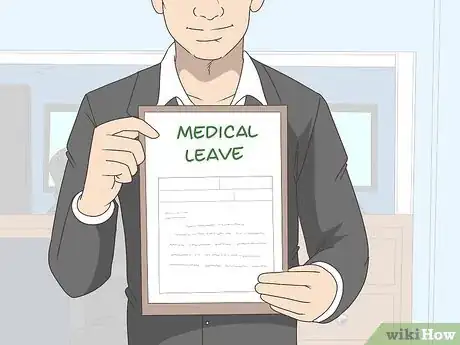


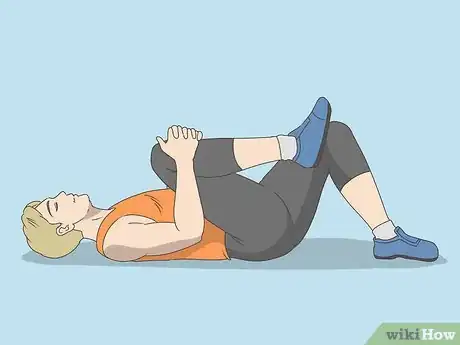
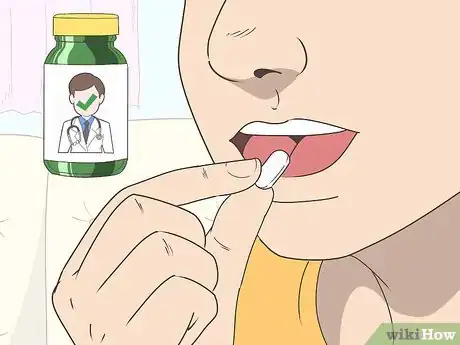



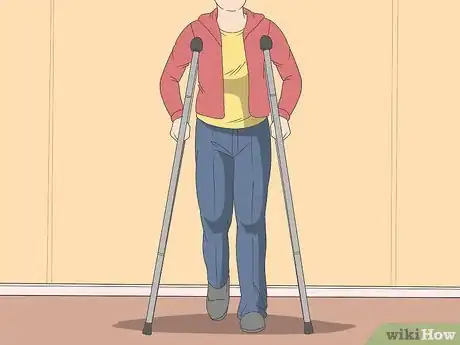
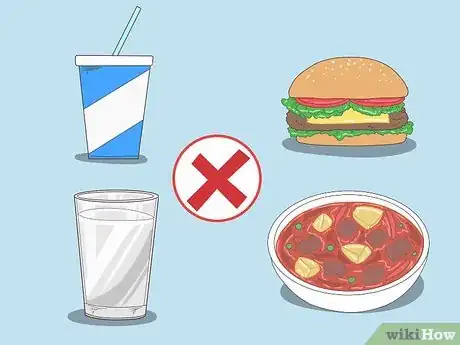


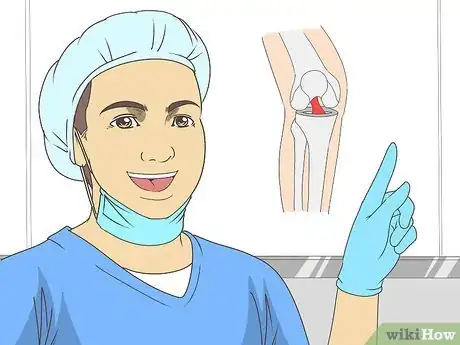


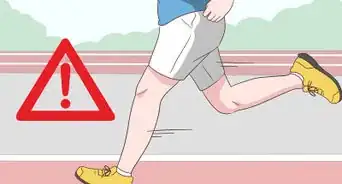





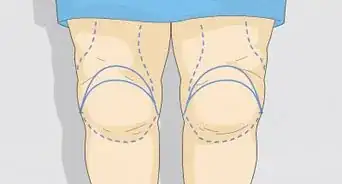

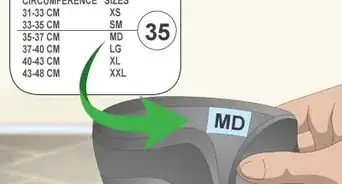
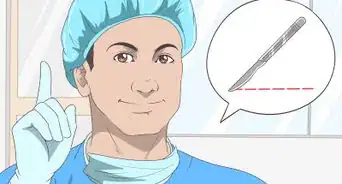
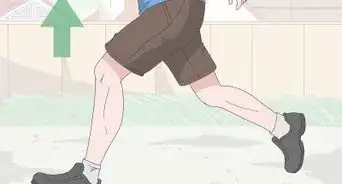
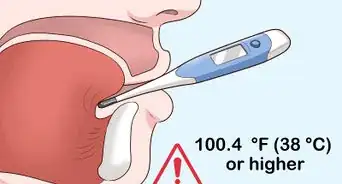













































Medical Disclaimer
The content of this article is not intended to be a substitute for professional medical advice, examination, diagnosis, or treatment. You should always contact your doctor or other qualified healthcare professional before starting, changing, or stopping any kind of health treatment.
Read More...